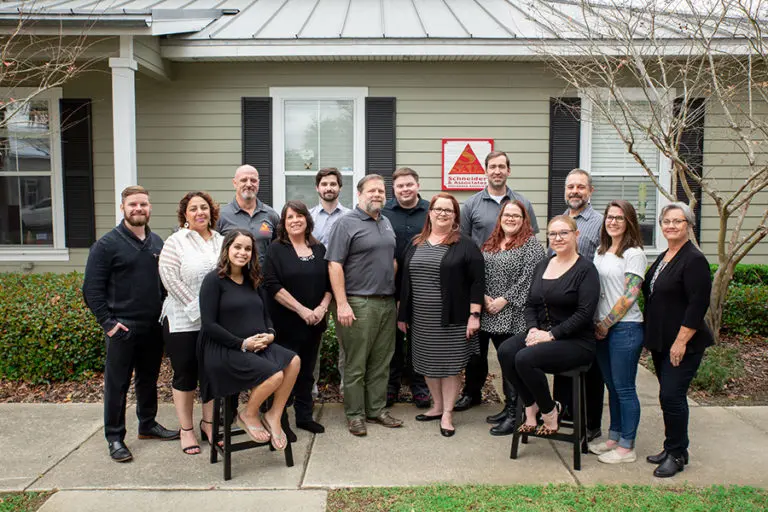Your Roadmap to Starting an Insurance Agency in Florida

The Importance of Starting an Insurance Agency in Florida
If you’re wondering how to start an insurance agency in Florida, this guide will give you the answers you need right away:
Understand licensing requirements: Obtain the necessary licenses from the Florida Department of Financial Services.Complete pre-licensing education: Study and pass the required exams.Register your business: Ensure compliance with the Florida Division of Corporations.Get an agency license: Follow the steps for application via the MyProfile portal and designate an agent-in-charge.Build your agency’s foundation: Develop a business plan, target niche markets, and generate leads.
Starting an insurance agency in Florida can be a rewarding venture. The Sunshine State’s booming economy and the constant need for property and casualty insurance create vast opportunities. However, this path requires careful planning and a good understanding of the regulatory landscape specific to Florida.
My name is Paul Schneider, and I’ve successfully launched and operated two independent insurance agencies in Florida. With over 20 years in the insurance industry, I understand the ins and outs of how to start an insurance agency in Florida, and I’m here to guide you through the process.
Understanding Licensing Requirements
Starting an insurance agency in Florida involves navigating a complex regulatory landscape. Here, we’ll break down the essential steps to help you understand licensing requirements.
Types of Licenses
The first step is to determine the types of licenses your agency will need. Florida requires all insurance agencies to have a 21-05 insurance agency license. Additionally, the agent-in-charge must hold licenses relevant to the lines of insurance your agency will sell. Here are the common licenses:
2-16: Life, Health, and Variable Annuities8-16: Health Only2-18: Life and Variable Annuities8-18: Life Only
If your agent-in-charge holds a limited-lines license or any other license not listed above, they are not eligible for this role.
Application Process
To apply for your Florida insurance agency license, follow these steps:
Create a MyProfile Account: Start by setting up an account on the MyProfile portal of the Florida Department of Financial Services (FLDFS) website. This account will be used for application submission and updating business information.
Appoint an Agent-in-Charge: Designate a licensed agent responsible for overseeing all insurance transactions. The agent-in-charge must hold licenses in all lines of insurance your agency will sell.
Submit Fingerprints: All officers and members involved in the management of the agency must submit fingerprints. Licensed insurance agents are exempt from this requirement as their fingerprints are already on file. Fingerprinting fees are $50.75 and must be paid directly to the vendor.
Complete the Application: Fill out and submit the application through your MyProfile account. Ensure all information is accurate and complete to avoid delays.

Maintaining Your License
Once you have your agency license, maintaining it is crucial. Here’s what you need to know:
Renewal: Agency licenses must be renewed regularly. Keep track of renewal dates and ensure all necessary documentation is submitted on time.Agent-in-Charge: The agent-in-charge must be present during all insurance transactions and is responsible for compliance with the Florida Insurance Code.Compliance: Adhere to all regulatory requirements, including continuing education for agents and regular internal audits to ensure compliance.
By following these steps, you can steer the licensing requirements and set your agency up for success in Florida. Now, let’s move on to the steps to start your insurance agency.
Steps to Start an Insurance Agency in Florida
Pre-Licensing Education
Before you can even think about applying for a license, you need to complete pre-licensing education. This is a mandatory step to ensure that you have the foundational knowledge required to sell insurance in Florida.
Course Fees and Providers: The cost for pre-licensing courses can vary, but you can expect to pay anywhere from $100 to $300. Several approved providers offer these courses, both in-person and online, so you can choose the format that best fits your schedule.
Study Materials: Most course providers will supply study materials, including textbooks and online resources. Make sure to use these materials to get a comprehensive understanding of the insurance laws and practices in Florida.
Licensing Exam
Once you’ve completed your pre-licensing education, the next step is to take the licensing exam.
Exam Fees and Pearson VUE: The fee for the licensing exam is typically around $44. Pearson VUE administers the exam, and you can schedule it through their website. They have multiple testing centers across Florida, making it convenient to find a location near you.
Preparation Tips: Make sure to review all your study materials thoroughly. Practice exams can be particularly helpful. Focus on understanding key concepts and terms, as the exam will test your knowledge on various aspects of insurance laws and practices.
Business Registration
After passing your licensing exam, you need to register your business.
Business Name Guidelines: Your business name should clearly indicate that you are an insurance agency. Avoid any words that imply you are an insurance company, as this is not allowed by the Florida Office of Insurance Regulation (FLOIR).
Florida Division of Corporations: You’ll need to register your business with the Florida Division of Corporations. This process includes filing your business structure (LLC, Corporation, etc.) and paying the necessary fees.
Registered Agent: You must designate a registered agent who will be responsible for receiving legal documents on behalf of your business. This can be you or another individual, but they must have a physical address in Florida.
Obtaining an Agency License
Now, it’s time to apply for your agency license.
Application Process: You can apply for your Florida insurance agency license online via the MyProfile portal of the Florida Department of Financial Services (FLDFS). If you don’t have an account, you’ll need to create one to submit your application.
Agent-in-Charge Designation: As part of the application, you must designate a licensed agent-in-charge who will oversee all insurance transactions. This individual must be licensed in the lines of authority your agency will handle.
MyProfile Portal: Use the MyProfile portal not only for your initial application but also for updating your business information. This includes changes in the registered business name, agent-in-charge, and other key details.
Following these steps will help you steer the process of starting your insurance agency in Florida. Next, we’ll discuss how to build your insurance agency from the ground up.
Building Your Insurance Agency
Creating a Business Plan
Creating a solid business plan is the first step in building a successful insurance agency. Your plan should outline your goals, identify your target market, and include detailed financial projections.
Goals: Set clear, measurable objectives for your agency. These could range from the number of policies sold in the first year to achieving a certain customer satisfaction score.
Target Market: Identify who your ideal clients are. Are you focusing on families, small businesses, or perhaps a niche market like high-net-worth individuals?
Financial Projections: Estimate your startup costs, monthly expenses, and revenue streams. This will help you understand how much capital you need and when you can expect to break even.
Finding Your Niche
Finding your niche can set your agency apart from the competition. Conduct thorough market research to identify gaps in the market that your agency can fill.
Market Research: Look at industry trends, customer needs, and competitor offerings. Use this information to find a unique angle for your agency.
Specialized Products: Consider offering specialized insurance products that cater to specific needs, like flood insurance for coastal areas or cyber liability insurance for tech companies.
Competitive Analysis: Evaluate your competitors to see what they are doing well and where they are lacking. This can help you position your agency more effectively.
Generating Leads
Generating leads is crucial for the growth of your agency. Use a combination of targeted marketing and multi-channel strategies to attract potential clients.
Targeted Marketing: Focus your marketing efforts on your identified target market. Use data analytics to understand where your potential clients are and how to reach them effectively.
Multi-Channel Strategies: Don’t rely on a single marketing channel. Use a mix of online ads, social media, email marketing, and traditional methods like direct mail.
Lead Generation Tools: Invest in tools that can help you manage and track your leads. CRM systems can be particularly useful for this purpose.
Networking Strategies
Networking is essential in the relationship-oriented insurance industry. Building strong client relationships and attending industry events can help you grow your network.
Client Relationships: Focus on building lasting relationships with your clients. Provide excellent customer service and follow up regularly to ensure their needs are met.
Industry Events: Attend conferences, seminars, and local business events to meet potential clients and industry peers. These events are great opportunities to learn and network.
Referral Programs: Encourage your satisfied clients to refer their friends and family. Offer incentives like discounts or gift cards to motivate them.
By following these steps, you can build a strong foundation for your insurance agency. Next, we’ll cover how to effectively operate your agency to ensure long-term success.
Operating Your Insurance Agency
Setting Procedural Guidelines
To run your insurance agency smoothly, procedural guidelines are essential. These guidelines should cover every aspect of your business operations.
Standard Operating Procedures (SOPs): Create SOPs for tasks like client onboarding, policy management, and claims processing. This ensures consistency and reduces errors.
Employee Training: Regular training sessions help employees stay updated on industry changes and improve their skills. Training can cover new software, regulatory updates, and customer service techniques.
Customer Service: Excellent customer service is key. Train your team to handle client queries promptly and professionally. Happy clients are more likely to refer others to your agency.
Implementing Management Systems
Using the right management systems can make running your agency much easier.
Agency Management Software: This software can help you manage client information, policies, and claims. It streamlines operations and improves efficiency.
CRM Tools: Customer Relationship Management (CRM) tools help you track interactions with clients. This ensures you never miss a follow-up and can personalize your services.
Workflow Automation: Automate repetitive tasks like sending renewal reminders or follow-up emails. This saves time and reduces the chance of human error.
Ensuring Compliance
Staying compliant with regulations is crucial for your agency’s success.
Regulatory Requirements: Familiarize yourself with Florida’s insurance laws, predominantly found in Chapter 69B of the Florida Administrative Code. Regularly review these laws to stay updated.
Internal Audits: Conduct internal audits to ensure all procedures comply with regulations. This can prevent costly fines and legal issues.
Continuing Education: Encourage your team to participate in continuing education programs. This keeps everyone updated on industry trends and regulatory changes.
By setting up strong procedural guidelines, implementing effective management systems, and ensuring compliance, you can run your insurance agency efficiently and successfully. Next, we’ll discuss strategies for growing your agency.
Growing Your Insurance Agency
Scaling Operations
To grow your insurance agency, consider scaling operations through branch locations and strategic partnerships.
Branch Locations: Expanding to new locations can help you tap into different markets. For example, adding branches in different parts of Florida can attract clients with unique needs. Each branch must be listed or licensed as a branch location under your parent license. This ensures compliance with Florida regulations.
Mergers and Acquisitions: Acquiring other agencies can rapidly increase your client base and market share. This strategy can also bring in experienced staff and new product lines, enhancing your agency’s offerings.
Strategic Partnerships: Partner with other businesses to cross-sell products. For instance, teaming up with a real estate firm can help you offer homeowners insurance to new homebuyers.
Embracing Technology
Adopting the latest technology is essential for staying competitive and efficient. Here are some technologies to consider:
AI and Machine Learning: Use AI to analyze customer data and predict their insurance needs. This can help you offer personalized products and improve customer satisfaction.
Blockchain: Blockchain can improve transparency and security in transactions. It’s particularly useful for verifying claims and preventing fraud.
Cloud Computing: Store your data on the cloud to ensure it’s accessible from anywhere. Cloud solutions can also reduce IT costs and improve data security.
Telematics: For auto insurance, telematics can track driving behavior and offer customized premiums. This technology can attract tech-savvy clients looking for personalized insurance solutions.
Employee Development
Your employees are your most valuable asset. Investing in their development can boost productivity and reduce turnover.
Training Programs: Offer regular training programs to keep your staff updated on the latest industry trends and technologies. This can improve their skills and make them more effective in their roles.
Positive Workplace Culture: Foster a positive workplace culture to keep your employees engaged. According to research, a positive work environment is crucial for employee retention and productivity.
Retention Strategies: Implement strategies to retain top talent. This could include competitive salaries, benefits, and opportunities for career advancement.
By focusing on scaling operations, embracing technology, and developing your employees, you can set your insurance agency on a path to long-term success.
Next, we’ll address some frequently asked questions about starting and running an insurance agency in Florida.
Frequently Asked Questions about Starting an Insurance Agency in Florida
Is owning an insurance agency profitable?
Yes, owning an insurance agency can be very profitable. The income potential is substantial, especially if you build a strong client base and offer a variety of insurance products.
Commissions: Insurance agents typically earn commissions on the policies they sell. For example, life insurance agents might earn up to 100% of the first year’s premium as a commission.
Bonuses: Many insurance companies offer bonuses for meeting sales targets or retaining clients, adding another layer of income potential.
How much does it cost to become a licensed insurance agent in Florida?
Starting an insurance agency involves several costs:
Pre-License Education: Before you can take the licensing exam, you need to complete a pre-licensing education course. The cost of these courses can range from $150 to $300, depending on the provider.
Exam Fees: The licensing exam fee is around $42, and it’s administered by Pearson VUE.
Fingerprinting: You need to submit fingerprints, which costs $50.75, paid directly to the vendor.
Application Fees: The application fee for your insurance agency license is $60. Additional fees may apply for business registration and other required permits.
How long is an insurance agency license effective in Florida?
An insurance agency license in Florida is typically valid for two years.
Renewal Requirements: You must renew your license every two years. This involves completing continuing education courses and paying a renewal fee.
Agent-in-Charge: Your agency must always have a designated agent-in-charge who holds active licenses in the lines of insurance you sell. This ensures compliance with Florida regulations.
Compliance: Staying compliant with state regulations is crucial. This includes maintaining proper records, submitting required reports, and ensuring all agents meet their continuing education requirements.
By understanding these frequently asked questions, you can better prepare for the journey of starting and running your own insurance agency in Florida.
Next, we’ll dig into the steps to start an insurance agency in Florida.
Conclusion
Starting an insurance agency in Florida is a rewarding venture, but it requires careful planning and adherence to state regulations. By following the steps outlined in this guide, you’ll be well on your way to launching a successful business.
Summary: We’ve walked you through the essential steps of how to start an insurance agency in Florida. From understanding licensing requirements to building and growing your agency, each phase is crucial for your success. Ensure you meet all regulatory requirements, create a solid business plan, and leverage the right tools and technologies to stay competitive.
Schneider and Associates Insurance Agencies: At Schneider and Associates Insurance Agencies, we understand the unique challenges and opportunities that come with starting an insurance agency in Florida. With over 20 years of experience and a deep understanding of the local market, we are here to support you every step of the way. Our team provides personalized service and expert advice to help you protect your business and achieve your goals.
Final Thoughts: Starting your own insurance agency is a significant undertaking, but with the right knowledge and resources, you can build a thriving business. The key to success lies in meticulous planning, continuous learning, and a strong commitment to serving your clients.
If you’re ready to take the next step in your journey, contact us at Schneider and Associates Insurance Agencies. We’re here to help you steer the complexities of the insurance industry and ensure your business’s success.









